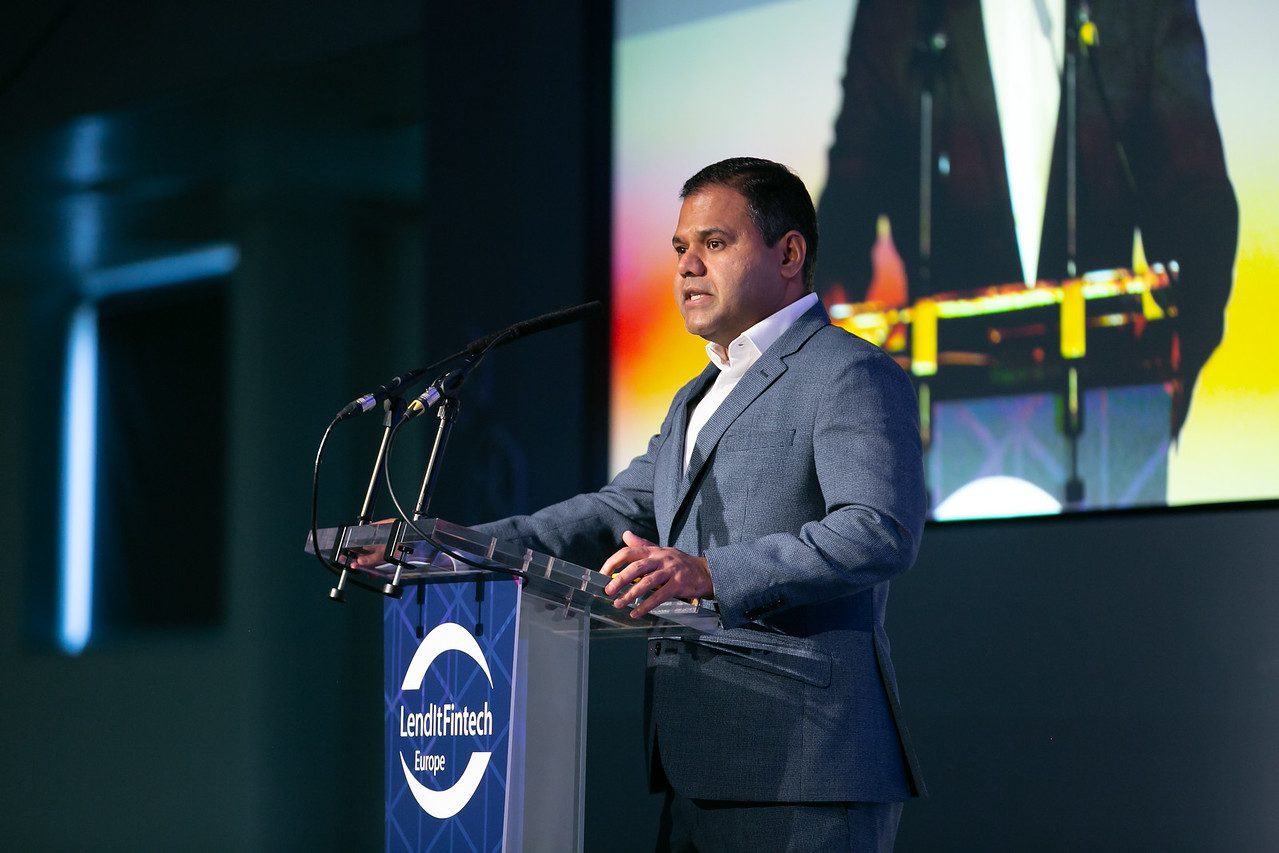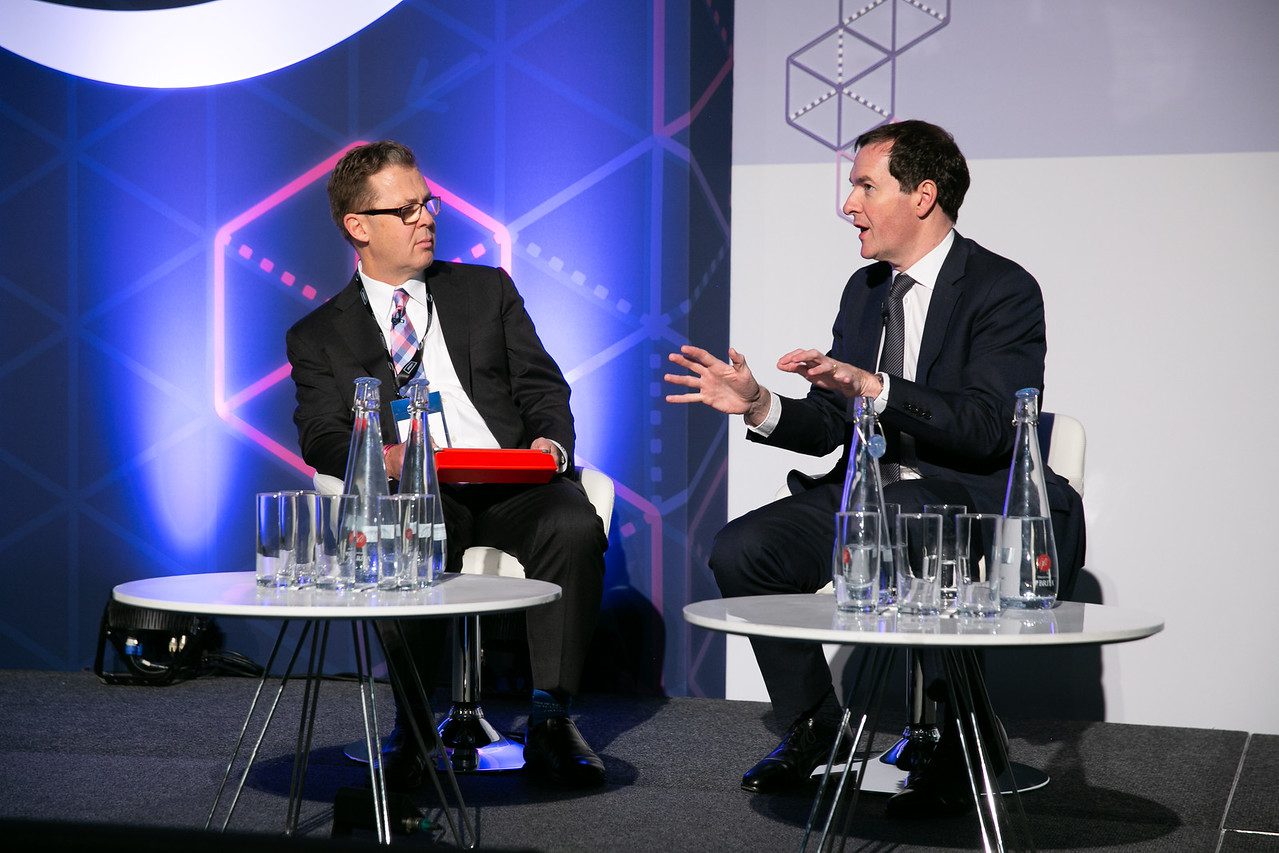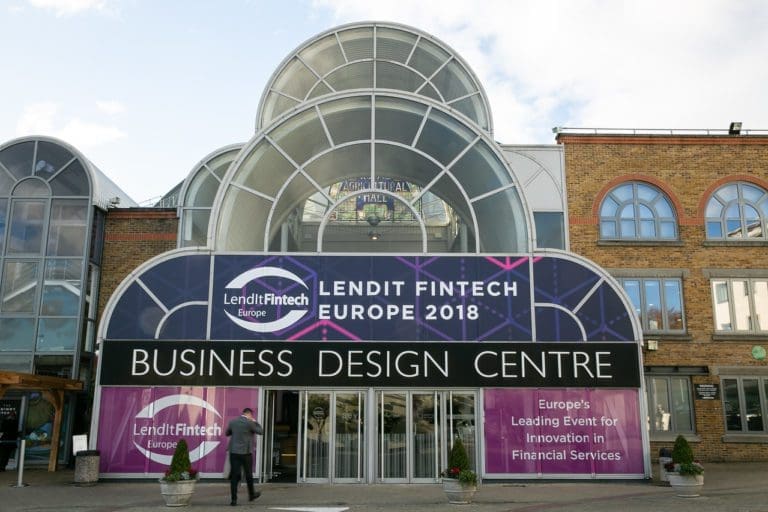Last week the European fintech industry gathered in London for the fifth annual LendIt Fintech Europe event. While there were many key themes that emerged from our 2018 event, given the state of politics in the UK right now, one big theme hovered over them all: Brexit. As we got underway last Monday at the Business Design Centre it was not clear that the UK Prime Minister would make it through the day with her job intact.
Of course, the industry moves on regardless of the political events of the day so all the attendees got down to business just like they have done at previous events. Key themes that emerged over the two days were the continued inroads incumbent banks were making in fintech, the maturation of bank/fintech partnerships, the importance of open banking initiatives that are in development, and why strong and sensible regulation is critical for the development of fintech. Videos of all the keynote sessions are now posted online but below is a summary of some of the key points made in each session.

Kicking things off this year was Rajesh Agrawal, the Deputy Mayor for Business at the City of London. He talked passionately about the opportunity that London provides for business and the fact that there is an entire ecosystem setup here to support fintech entrepreneurs. With London you have a city that combines the best of New York, Silicon Valley and Washington DC all in one place. He made the interesting point that the future is all about connecting global cities and that cities are more important than ever before. Great cities like London can help enable these connections. He closed with the simple message that London is open for business and regardless of what happens with Brexit it will remain open.
Jaidev Janardana, the CEO of Zopa, talked about customer centricity and questioned whether the incumbent banks were really focused on their customers; if they were their customer satisfaction scores would be higher. For example, banks often provide teaser savings rates to lure customers in and then reduce it if you stay. Jaidev says that this is the wrong approach as you don’t want to surprise customers who stay in a negative way and then just rely on inertia. He also talked about open banking and the fact that customers should be able to control who has access to their own data. Zopa will be incorporating this concept into their banking products when their bank launches. One somewhat surprising piece that came out of Jaidev’s keynote talk was his praise of the work the UK regulators are doing. He says strong regulation is good for fintech and it certainly helped the emergence of the P2P lending industry a few years ago.
Shivani Siroya is the CEO of emerging markets microfinance platform Tala. She talked about the challenges serving people who have never had financial products offered to them before. What we consider a tiny amount of money, like $100, a loan of that size can be life changing for people in the developing world. Shivani also talked about the importance of good regulation and how, in many of the countries they operate, there is little or no financial regulation. In those cases they adopt the US or UK model and apply those best practices across their markets even if it is not required. Shivani is very bullish about being able to serve the bottom 1.5 billion people in the world who remain unserved today.
Jo Ann Barefoot interviewed Chris Woolard, Director of Strategy and Competition at the Financial Conduct Authority (FCA), and discussed the new global regulatory initiative called the Global Financial Innovation Network. This is where the FCA is partnering with 10 other international regulators (including the CFPB) on knowledge sharing and sandbox concepts. Chris said you can’t try to harmonize global financial regulations, that would take 20 years and be ineffective anyway, but you can work together on new initiatives such as anti-money laundering. He also talked about their recent crypto paper and the fact that the FCA wants the UK to be a good place for crypto companies to innovate but also a good place for consumers.
Joel Perlman is the co-founder of OakNorth and he shared some of the secrets to their success: a singular focus on serving one market: debt capital for growth entrepreneurs. Their mission is to become the dominant global player in mid-sized loans for fast growing companies. They have seized on an opening left by banks when they centralized credit decisions around 30 years ago. Interestingly, while OakNorth uses technology at the start of the underwriting process they still rely on manual underwriting to approve each deal.

Anne Boden, the CEO and co-founder of Starling Bank, was one of the most popular keynotes of the event. She discussed what APIs will do to transform banking: breaking up the value chain for the first time ever. We are moving to a world that will be more about different products plugging together with APIs than about a monolithic bank providing a suite of their own products. Starling is embracing the marketplace model of banking where some products are developed in house and some are offered through partnerships with other fintech companies.
June Ou, the co-founder and CTO of San Francisco-based startup Figure (see my featured piece on Figure from last week) talked about the role blockchain will have in the future of financial services. She provided details on the development of Provenance, their new blockchain platform, describing the different parts to their system. They are going after the $3 trillion securitization market and the 100 bps of cost that is involved in every transaction.
On Tuesday morning I kicked off day two by bringing my kids on stage and introducing them to the audience. Given it was Thanksgiving week and they were off school my wife and I decided to make it a family trip to London. This was my 14th LendIt event and they had never been to one so they were able to look around and learn a little about what their dad does for a living. They received a warm round of applause from the crowd which thrilled them to no end.
The opening keynote speaker on day two was Samir Desai, the CEO of Funding Circle, speaking at a fintech event for the first time since their recent IPO. He touched on their IPO maintaining that they have done pretty well in the context of the recent slide in tech stocks globally. On global expansion he said that Funding Circle is now ready to start entering markets and will do so again next year. And they will get back in the habit of entering new markets on a regular basis. Samir also said he thinks a recession will provide a good opportunity for Funding Circle as traditional lenders will pull back on their small business lending.
One of my favorite sessions of the event was the chat with Anil Stocker, CEO of MarketInvoice and Ian Rand, CEO of Barclays Business Bank. Both CEOs gushed about the massive potential of this groundbreaking relationship (you can learn more in my recent podcast with Anil) and how great the fit is for each other. The referral program within Barclays is up and running but that is just phase one in a multi phased relationship that will stretch out over many years. This relationship will be the first time that Barclays has relied on a third party credit risk model but the intention is for them to put meaningful balance sheet dollars to work in this program.

Our featured keynote speaker of the event was the former Chancellor of the Exchequer, George Osborne, who I interviewed on stage. We started out discussing Brexit given it was the talk of the UK during this time. Interestingly, he thought that fintech would be one of the sectors least affected by Brexit. He thinks big European financial institutions will maintain serious investment in the UK whatever happens. On open banking Osborne was quite bullish saying that even though it is off to a slow start he sees the impact of open banking regulation to be “pretty dramatic”. He addressed the Innovative Finance ISA (IFISA), an initiative he championed while chancellor that is also off to a slow start. He thinks that expectations might have been too high at the beginning but he is confident it will work out in the long run. He took more than a dozen questions from the audience on everything from his relationship with former prime minister David Cameron, his regrets over Brexit, what trade deals the UK should pursue, the aforementioned IFISA, UK political choices today and more.
While many fintech leaders challenged the big banks with their large bureaucracies and legacy systems we heard the counterpoint from Kaushalya Somasundaram, the head of Fintech Partnerships at HSBC. Her group was setup two years ago inside HSBC to help direct the banks fintech investments. Banks have historically been very good at what Kaushalya calls sustainable innovation, adding new technologies that help the bank but that don’t challenge the fundamental business model of the bank. Digitization efforts in the UK have cost £250 billion over the past decade but we have not extracted £250 billion of value from these investments. Today, banks are getting much better at bringing real innovations to market as they have more decentralized decision making.
Marcus by Goldman Sachs launched in late September but the company was mentioned several times throughout the event. So, the keynote session with the head of Marcus UK, Des McDaid, become one of the most hotly anticipated sessions. He gave his thoughts on the reason Marcus has been able to reach 100,000 customers in a little over a month, who he sees as their main competition, the cultural difference between Marcus and working at a large retail bank and what the next move for Marcus might be.
John Goodall, the CEO of Landbay, talked about the misconceptions of the UK buy to let market. Despite some headwinds caused by recent tax changes the buy to let market is strong and growing. Conversely, owner occupied mortgages peaked in 2004 and have not yet returned to that level when it comes to number of units. In the UK mobility is growing and when people move they typically want to rent which keeps the buy to let market strong. The three largest UK banks continue to lose marketshare in buy to let even as the market grows. This has provided opportunities for smaller players including fintech lenders to gain a foothold in an established market.
On day two we also held our popular PitchIt @ LendIt competition. This annual startup pitch competition attracted over 100 entries which the LendIt team whittled down to eight strong finalists. The winner this year was the Israeli startup Innovative Assessments. They provide a unique credit assessment tool to promote financial inclusion that requires no financial data, they try to assess the personal character of the borrower. It is a really interesting idea and this company is one to keep an eye on.
There was so much more that happened over the action packed two days including dozens of fascinating sessions in the tracks. The audio recordings of these sessions will be available shortly. This year, our Brella one on one networking area was jam packed for two full days with almost 1,700 meetings taking place (77% more than last year).
So, a big thank you to all the LendIt Fintech Europe 2018 sponsors and attendees. It is the enthusiasm of people in the LendIt community that makes these events so fulfilling for me and the LendIt team. I will close with a quote from Patrick de Nonneville, the COO of October (formerly Lendix) who posted his summary of LendIt Fintech USA 2018 here:
The thing that makes Lendit unique, and which keeps us coming, is that within two days you will meet absolutely everyone in the industry.



